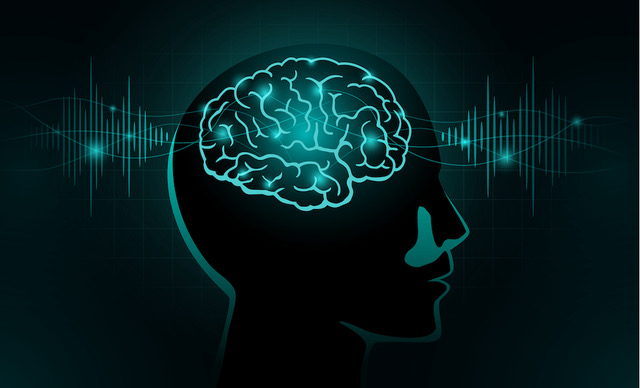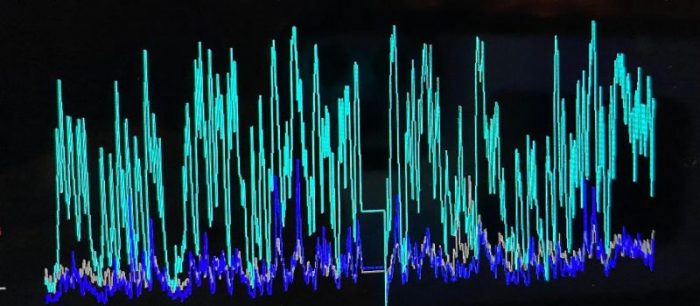Alpha Theta Brainwave Training
The History of the Alpha Theta Protocol
Alpha training gained popularity in the 1970s for treating anxiety disorders. However, inconsistent findings and non-specific effects led to mixed results (Hardt & Kamiya, 1978; Orne & Paskewitz, 1974; Plotkin & Rice, 1981). Peniston and Kulkosky (1989, 1990) significantly expanded the protocol’s applications by studying its effects on alcoholic patients. They integrated Alpha/Theta (A/T) training into a multi-modal treatment approach, advocating for its benefits in reducing self-reported depression (Beck et al., 1961) and promoting positive personality changes. Many of the alcoholics treated were war veterans with PTSD, prompting the extension of the mixed therapeutic program to address PTSD symptoms (Peniston & Kulkosky, 1991; Saxby and Peniston, 1995; Peniston and Kulkosky, 1999). Initially focused on alpha waves, their emphasis shifted to theta waves to transition from alpha to theta brainwave dominance. This state, akin to hypnagogia, allowed patients to reexperience and process past traumas. Peniston and Kulkosky noted that patients seemed to integrate unresolved traumatic experiences through anxiety-free images and memories generated during the theta state. While independent validation of A/T training for PTSD is still needed, a controlled study has shown its benefits for treating stimulant misuse in a residential care setting.
Bill Scott’s Contributions to Alpha-Theta Neurofeedback
Bill Scott has significantly advanced alpha-theta neurofeedback through his scientific studies and over 30 years of dedicated work. His research has focused on understanding the mechanisms and applications of alpha-theta training, particularly in clinical settings. Scott’s work has contributed to refining the protocols used in neurofeedback, enhancing their efficacy and reliability. He has conducted numerous studies demonstrating the benefits of alpha-theta neurofeedback for various psychological conditions, including PTSD, anxiety, and substance abuse. Scott’s long-term commitment to the field has helped establish alpha-theta training as a credible and effective therapeutic intervention, paving the way for its broader acceptance and application in mental health treatment.
Alpha-Theta for Post-Traumatic Stress Disorder (PTSD)
Individuals who have PTSD endure flashbacks and other distressing memories. During the alpha-theta protocol, these painful memories are processed without the typical physical arousal. As the brain’s alpha and theta waves dominate, traumatic memories can emerge into conscious awareness without triggering physiological arousal. One major challenge in PTSD treatment is managing the hyperarousal associated with painful memories. In an alpha-theta state, memories can be experienced more calmly, allowing for more effective reprocessing. Key brain areas necessary for memory processing, such as the pre-frontal cortex, can then integrate and reprocess these memories, reducing their emotional charge. This reexperiencing in a “witness state” allows traumatic events to be incorporated into one’s standard historical narrative.
Sensors attached to the scalp monitor EEG activity during the training. Typically, individuals close their eyes and listen to relaxing music and auditory cues while sitting in a chair or recliner. This auditory feedback helps guide brainwave patterns into the alpha/theta state, which most people find relaxing.
Many practitioners combine alpha-theta training with psychotherapy, incorporating techniques like hypnosis or guided imagery.
Understanding PTSD: The Role of the Amygdala and Limbic System
PTSD results from a dysfunction of the amygdala and the broader limbic system. The amygdala, responsible for processing emotions like fear and pleasure, often becomes overactive in people living with PTSD. This heightened activity can lead to an exaggerated response to perceived threats, causing symptoms like flashbacks, hypervigilance, and severe anxiety. The limbic system, which includes the hippocampus and hypothalamus, plays a critical role in memory formation and emotional regulation. When trauma disrupts these areas, it impairs the ability to process and integrate traumatic memories effectively, resulting in the persistent and intrusive symptoms of PTSD.
Alpha-theta brainwave training can help alleviate PTSD symptoms by targeting these dysfunctional brain regions. The training promotes a state where the brain’s alpha and theta waves dominate, facilitating a calmer and more reflective mental state. In this state, the amygdala’s overactivity is reduced, and the limbic system’s functioning is improved. Alpha Theta allows for better emotional regulation and memory processing. By reexperiencing traumatic memories in a controlled, anxiety-free state, individuals can integrate these memories into their overall narrative without the intense emotional charge, leading to a reduction in PTSD symptoms.
Alpha-Theta Brainwave Training for Severe PTSD in War Veterans, Victims of Childhood Sexual Assault, and Non-Combatant Civilians in War Zones
Alpha-theta brainwave training shows promise in treating severe PTSD in various groups, including war veterans, victims of childhood sexual assault, and non-combatant civilians in war zones. War veterans often experience intense and chronic PTSD due to prolonged exposure to combat. The training helps them access and reprocess traumatic memories in a safe and controlled environment, reducing symptoms like flashbacks, nightmares, and hypervigilance. Similarly, victims of childhood sexual assault, who frequently have long-term PTSD, can benefit from the calming and reflective state induced by alpha-theta training. This state allows them to process traumatic memories without the overwhelming emotional response, facilitating healing and recovery. Non-combatant civilians in war zones also endure significant trauma, and alpha-theta brainwave training can provide a non-invasive and effective method for alleviating PTSD symptoms, promoting emotional stability, and improving overall quality of life.
Enhancing Music and Sports Performance with Alpha-Theta Brainwave Training
Alpha-theta brainwave training offers potential benefits for enhancing performance in music and sports. Musicians often experience performance anxiety, which can hinder their ability to perform at their best. Alpha-theta training helps musicians enter a state of flow characterized by heightened creativity and reduced anxiety. This state allows them to perform more freely and expressively, improving their overall performance quality.
Mental focus and relaxation are critical components of peak performance in sports. Athletes often face intense pressure and stress, negatively impacting their performance. Alpha-theta brainwave training helps athletes achieve a state of calm focus, enhancing their concentration, reaction times, and overall performance. By training the brain to enter this optimal state, athletes can improve their ability to handle stress, maintain composure under pressure, and perform at their highest potential.
Conclusion
Alpha-theta brainwave training represents a versatile and promising approach for treating PTSD and other trauma-related conditions. Its ability to induce a state of relaxation and promote effective memory reprocessing offers a unique therapeutic avenue for individuals struggling with the debilitating effects of trauma. Additionally, its applications in enhancing music and sports performance highlight its potential as a valuable tool for improving mental focus, creativity, and overall well-being. As research continues to validate and expand the applications of alpha-theta brainwave training, it holds significant promise for a wide range of individuals seeking healing and personal growth.
References:
https://pubmed.ncbi.nlm.nih.gov/663641/
https://www.psych.upenn.edu/history/orne/orneetal1974science458460.html
https://pubmed.ncbi.nlm.nih.gov/16161729/


